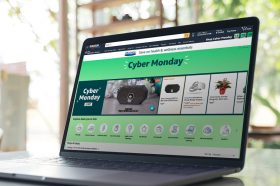Resources - Blog
Amazon Wholesale vs. Private Label: Which Model Is Right for You?

Stay on top of the latest e-commerce and marketplace trends.
First party (1P). Third party (3P). Wholesale. Private label. Retail arbitrage. Dropshipping. While all of these terms each have a complex definition and background of their own and represent a unique way of selling on Amazon, there are two that sellers frequently stack against each other to test which drives stronger sales results: wholesale and private label. Both wholesale or private label sellers also have their own set of challenges when it comes to brand and reputation management.
In the context of this article, wholesale refers to buying products in bulk directly from the manufacturer and operating as a reseller on the 3P marketplace, not selling wholesale to Amazon via a 1P partnership. In this overview, we break down the benefits and challenges associated with selling wholesale and private label on Amazon to help you determine which model might be worth pursuing for incremental growth.
Advantages and Disadvantages of Wholesale
As mentioned above, in order to sell products wholesale on Amazon, you need to place a high-volume order with established brand manufacturers and owners and, in turn, sell their products to consumers on Amazon. Here are some of the benefits of selling via a wholesale model:
- You do not need to create new ASINs or product detail pages, which are two standard, brand-building practices when establishing your own private label products.
- If you start out with a smaller group of manufacturers and experience success, an increasing number of brands will want to do business with you, positively impacting your scalability.
- There is a low barrier to entry, as your most important focus is finding reliable manufacturers with expansive catalogs who are willing to let you sell their products on Amazon.
- Selling wholesale is generally less time intensive — and easier to scale — than sourcing products via retail arbitrage.
- You may be able to purchase lower unit quantities with wholesale orders than your first production run for a private label product with a large minimum order requirement (MOQ).
- Intellectual property (IP) infringements such as on your trademarks or copyrights are dealt with by the brand owner, not you.
- You do not need to allocate a significant amount of your annual budget to advertising, as the products likely have inherent demand and are not brand new to the market. They probably already have an Amazon sales rank, so there is lower immediate risk involved.
- There is a chance the lead time is less than that of private label products, particularly if you are sourcing your private label SKUs from overseas.
Below is an overview of some of the challenges you may encounter with a wholesale model:
- You will need to obtain a wholesale license, which is required in most states to legally resell products in a wholesale manner. The license, sometimes referred to as a resale permit license or resale certificate, enables you to be exempt from sales tax on your purchases, but depending on your state, you may need to charge your customers sales tax. The process can be lengthy, as you need to apply for an Employer Identification Number (EIN) with the Internal Revenue Service, which generally takes four to five weeks.
- You are selling products that other merchants may already be selling, which could lead to a lack of demand or price erosion over time. To mitigate this,it is recommended that you partner with wholesale suppliers that do not already have an Amazon presence, a task that may prove to be rather difficult, given that the marketplace owns 5.1% of the total U.S. retail market.
- There will be fierce competition on your listings, given that you will be vying for Buy Box share.
- You really need to sell yourself to the brand manufacturer, which can be a time-consuming and in-depth process. They will want to know what value you will provide and may ask that you prove your experience and sales history and demonstrate the ways in which you will be committed to their brand and products. Once you find the right partners, a lot of hard work is involved in nurturing and maintaining productive relationships.
Advantages and Disadvantages of Private Label
You might be asking, “what exactly are private label products?” These products are manufactured by a third-party manufacturer and sold under your own brand name. The manufacturer has no rights over the label or brand and you get to decide on the product design, your brand logo, labeling, packaging, and all other creative elements. Below is a roundup of the key benefits of selling private label products:
- The profit margins can be extremely lucrative if you find an untapped product niche with consumer demand.
- You have influence and control over the end-to-end creative process and end up building an entire brand from the ground up. Unlike selling wholesale, with private label selling, you have your own brand and get to create your own value and reputation.
- As long as you have the cash flow, you can add additional products to your private label line and are not limited by a certain cap on available products the way you might be with manufacturers via a wholesale model.
- You automatically own the Buy Box, as you do not have direct competition on your ASIN.
- You control the supply chain and can work with the manufacturer to decide how many units you want produced after your initial order, when you want to begin production, and if you have any changes for future orders.
Here are some of the most notable challenges or drawbacks to selling private label products:
- A significant amount of upfront capital is required with initial orders and generally, you will want to allocate spend to advertise your private label products to drive discovery.
- The time commitment involved with creating Amazon ASINs, product detail pages, and branding elements such as Amazon Stores is extensive.
- There is likely more of a lead time with manufacturing and importing private label products than selling wholesale products, particularly if you are sourcing from overseas.
- More guesswork is involved with regard to demand forecasting.
- The onus is on you to generate positive ratings and reviews, which can, in turn, drive shopper loyalty, fuel the flywheel, and aid organic rankings.
- Without a detailed vetting or quality assurance process in place, you may end up partnering with an illegitimate or low-quality supplier, which will lead to low-quality products.
Final Thoughts
If you have an idea of the product you want to sell on Amazon, but you face the predicament of where to source it from, this breakdown of the benefits and challenges associated with wholesale and private label selling models should help inform your decision.
By considering variables such as your business objectives, sales targets for the year, and product categories, you will be able to methodically assess the situation and decide on the business model that will be most lucrative for your unique business needs.
Learn what Feedvisor can do for your business.
When you partner with Feedvisor, you automatically receive access to our true, AI-driven technology and hands-on team of e-commerce experts. Contact one of our team members today to learn more about our end-to-end solution for brands and large sellers on Amazon, Walmart, and e-marketplaces.



